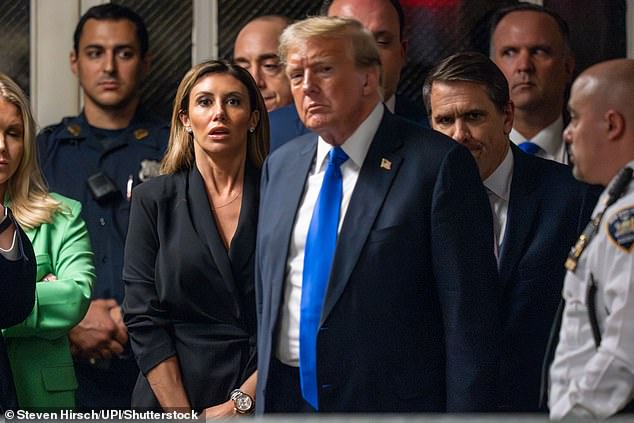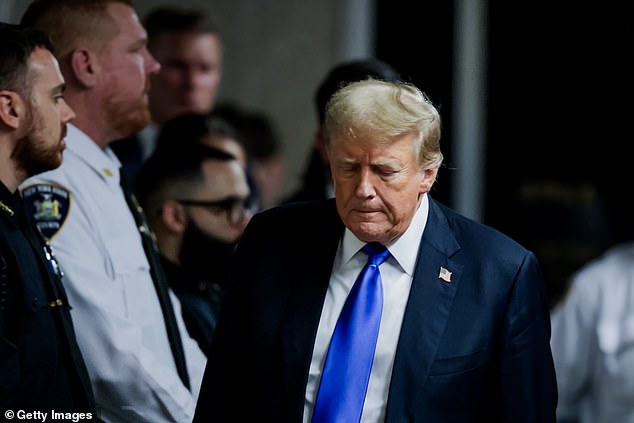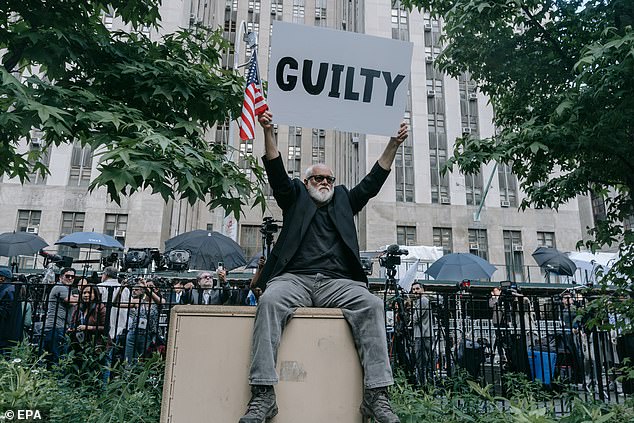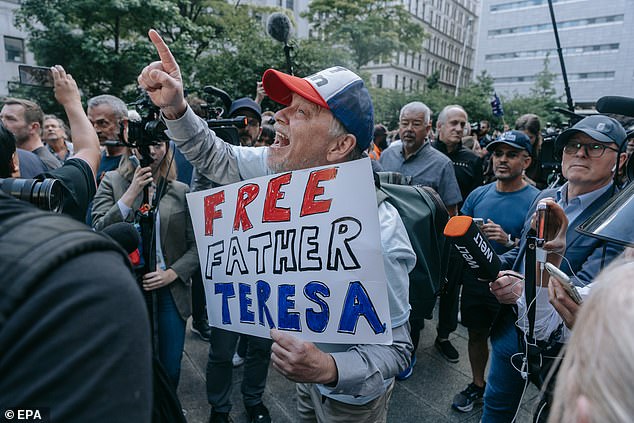Donald Trump’s 34 felonies bar him from having certain rights: These are the liberties the former president could lose now that he is a felon
Now that former President Donald Trump is a convicted felon, he could lose some of his individual freedoms, including possibly his ability to vote and own firearms.
On Thursday afternoon, a 12-person jury at a New York courthouse found Trump guilty of 34 crimes related to forging hush money payments to porn star Stormy Daniels.
The former president’s sentencing is expected to take place on July 11.
What happens at that hearing will be critical to what rights Trump will retain and what freedoms he may be stripped of.
Former President Donald Trump is walking around providing comments to members of the media after a jury convicted him of a felony charge of falsifying corporate records in a scheme to illegally influence the 2016 election. As a criminal, he may lose certain individual freedoms, depending on his sentence
In Florida, where Trump lives, it is notoriously difficult for criminals to regain their voting rights.
But since the Sunshine State adheres to other states’ disenfranchisement rules, Trump could vote on the assumption he won’t be behind bars on Election Day, which is the New York rule that Florida would enforce.
So if Trump escapes jail during his sentencing, he will be able to vote, likely for himself, in the November election.
Blair Bowie, an attorney who works with the Campaign Legal Center, said NBC News “The only way he wouldn’t be able to vote is if he’s in jail on Election Day.”
Still, Trump faces up to four years in prison on each charge, meaning he could be stripped of his right to vote depending on whether he is actually sentenced to prison.
Legal experts tell DailyMail.com it is highly unlikely he will serve a prison sentence as a non-violent first offender.

Former President Donald Trump leaves the courtroom after being convicted of 34 crimes

The former president could lose his right to vote and own firearms if he is sentenced to more than a year in prison on July 11
And Trump could appeal any decision to send him to jail until after the election, meaning he wouldn’t be in jail at the time of his and Biden’s likely rematch, which would allow him to vote.
Overall, the chances that Trump will not be able to vote in November are extremely low, perhaps close to zero.
Trump could also lose his right to bear arms.
According to the Bureau of Alcohol, Tobacco, Firearms and Explosives (ATF), individuals “convicted by any court of a crime punishable by more than one year in prison” will lose their ability to own guns.
So if Trump spends more than a year behind bars, he could waive his Second Amendment rights.
The former president could also be barred from serving on a jury, although it would be highly unusual for him to serve on a jury at all.
Under Florida law, individuals convicted of a crime are not allowed to serve as jurors until their civil rights are restored.
However, an individual’s civil rights can be restored “upon completion of all sentences, including parole or probation,” meaning Trump could regain his right to serve on a jury if he so chooses.

An anti-Trump protester reacts outside the courthouse after former US President Donald Trump was found guilty during his criminal trial

A pro-Trump protester breaks down in tears outside the courthouse after former US President Donald Trump was found guilty
Misdemeanor convictions also restrict individuals from receiving security clearances, such as top secret clearance.
Although if Trump is elected president in November, even as a convicted felon, he would receive the highest level of approval available despite his criminal record.
Alyssa Farah Griffin, the former White House director of strategic communications, called that fact “wild” in a post Thursday.
